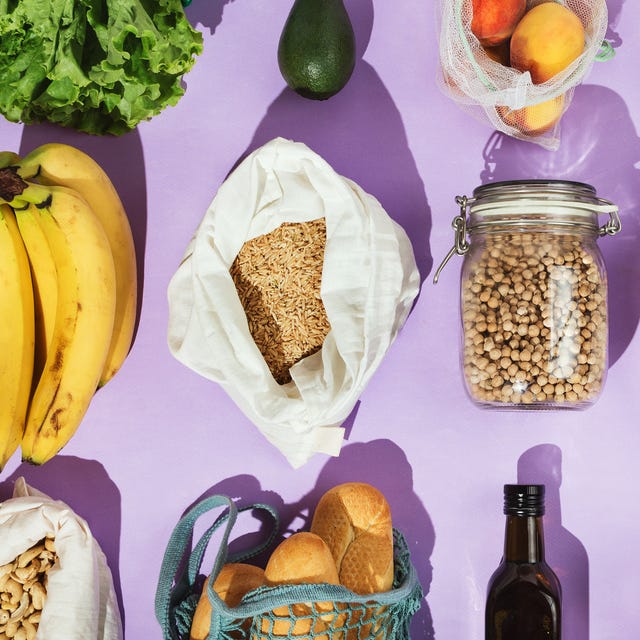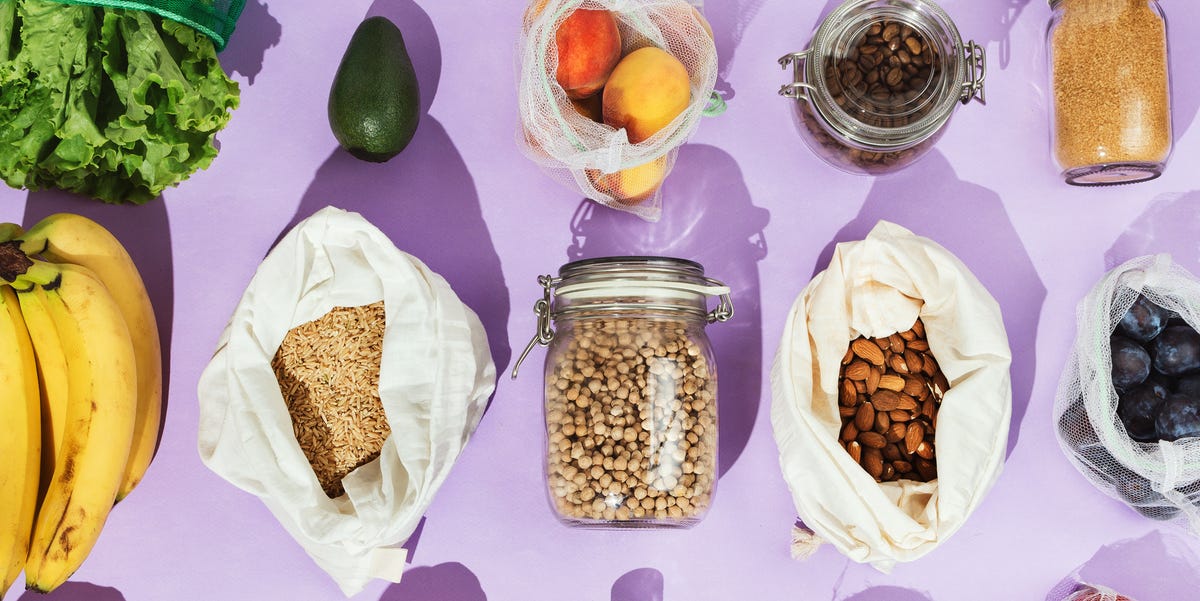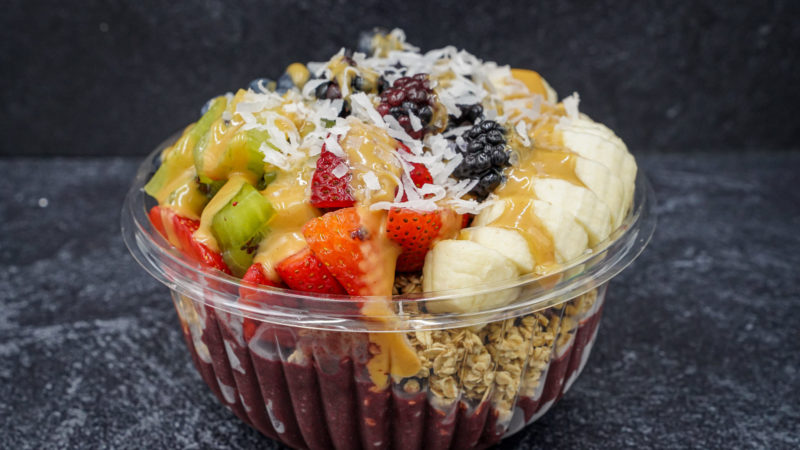
Natalia LavrenkovaGetty Images
Striving to fit a certain body image is out, achieving total body wellness is in. That mission starts in the kitchen, and it means enjoying meals that keep your heart healthy, steady your mood, nourish your organs, support a strong immune system and give you the energy you need to slay your busy days. If you’re looking to adjust your eating habits in the new year, keep this key word in mind: Satisfaction. Eating should be a pleasurable experience, and it’s totally possible to do that in a healthful and nutritious way.
“A healthy eating plan has to be sustainable for you and your lifestyle,” says Stefani Sassos, M.S., R.D.N., C.S.O., C.D.N., a registered dietitian and deputy director of the Good Housekeeping Institute Nutrition Lab.”Most diets don’t work because they focus on restriction. Commit to shifting your mindset to abundance in 2023.” Her advice? Instead of cutting out certain foods or entire food groups, which can mean missing out on crucial nutrients your body needs to function, focus on filling mealtimes with nutrient-dense foods that will nourish you now, plus help steer you toward a lifetime of healthy eating habits.
Our list of the best diets of 2023 focuses on heart health, foods to improve your brain function, eating more plants, sustainability and enjoyment. And if you want to shed a few pounds, we have some science-backed suggestions for how to do that in a healthy way, too. But these diets are not trendy quick fixes. Rather, they are designed to be maintainable and — you guessed it — enjoyable.
Our top picks:
Regardless of what diet or eating plan you end up committing to, there are a few general things to keep in mind to support the goal of total body wellness:
- Stay hydrated: “Drinking enough water on a daily basis is the single best thing you can do for your body and health,” Sassos says. Every single cell in your body requires water to function, and proper hydration can also improve sleep quality, cognition and mood. Commit to mostly drinking still or sparkling water, then keep it interesting by infusing your beverages with fresh fruit and herbs for added flavor.
- Think plant-forward: Research shows that eating plenty of fruits and veggies can reduce your risk for several chronic diseases, including cancer, heart disease and diabetes, all while promoting better overall health. “Some nutrients found in fruits and veggies can’t be found anywhere else,” says Sassos. Instead of loading up on heavily processed items that often contain minimal nutrition and excess calories, focus on finding delicious ways to add more produce to your meals. For instance, make and freeze veggie egg wraps instead of buying fast food breakfast sandwiches, or instead of munching on chips for a snack, dunk veggie sticks in hummus or fruit slices in nut butter. You’ll feel more satisfied and satiated, plus boost your nutrient intake all at once.
- Prioritize healthy fats: Your body needs healthy fats to function, because they’re a source of essential fatty acids, which the body can’t make itself, and certain vitamins can only be absorbed with the help of fats. The key is to swap saturated fats for unsaturated fats. The former can harm the heart over time, whereas healthy fats of the monounsaturated variety (found in foods like avocado, nuts and olive oil) can help protect your heart by reducing levels of “bad” LDL cholesterol and supporting levels of “good” HDL cholesterol in the blood, says Sassos.
- Choose lean proteins: “Protein is a key part of any diet and is the building block of life,” Sassos says. “It’s important for growth, tissue repair, muscle function and more, and it also helps fight infection, keeps body fluids in balance, assists with blood clotting and even carries fats, vitamins, minerals and oxygen around the body.” Lean protein in the form of fish, poultry, soy-based options like tofu or tempeh and legumes, such as beans and lentils, are all optimal protein sources.
- Go for grains: Whole grains are a key component of any nutritious diet. “Abundant in fiber, they have a range of healthy benefits, from supporting healthy digestion to promoting better glycemic control,” Sassos says. Brown rice, whole oats, farro, teff and quinoa are some great examples of this healthy staple.
- Minimize sodium and added sugars: Your body does need a very small amount of sodium to work properly, but too much can be harmful to your health, particularly if you have or at risk for heart disease. “Still, Americans consume more than 3,400 milligrams of sodium daily on average, which is far more than the recommended 2,300 milligrams limit,” Sassos says. Likewise, too much added sugar can raise your risk for chronic diseases like heart disease, diabetes and some cancers. “The U.S. Department of Agriculture (USDA) and U.S. Department of Health and Human Services (HHS) recommends limiting added sugar to 10{33c86113bcc32821f63c6372852a0f501e07fff55ce3ce61b15b246c5f8c531c} of your total daily calories,” says Sassos. “On a 2,000-calorie daily diet, that’s 50 grams per day.”
- Get moving: “Although nutrition is a huge part of the health equation, complementing your healthy eating routine with exercise can increase the benefits and elevate the health of your body and mind,” Sassos says. Even a brisk 30-minute walk each day can have a positive impact.
Our list of best diets hits all of those high points, and more. Read on to learn why each of these diets earned a top spot on our list.
Take time to speak with your primary care provider and/or a registered dietitian before making changes to your diet. Pre-existing health conditions may prevent some from following prescribed dietary plans without affecting their health in unexpected ways. Make sure you identify any specific nutritional needs or potential physical side effects before selecting a long-term diet. Also note that weight loss, health and body image are complex subjects — before deciding to go on a diet, we invite you to gain a broader perspective with our exploration into the hazards of diet culture.
Advertisement – Continue Reading Below
Advertisement – Continue Reading Below





More Stories
Hanco’s: Bringing the Flavors of Vietnam to Brooklyn
TropiBowls Bring Healthy Food to Tamarac • Tamarac Talk
How can we make our brains prefer healthy food? – study